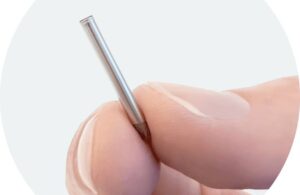
The FDA lifted the clinical hold on Vivani’s NPM-119, allowing the initiation of its LIBERATE-1 Phase 1 clinical trial. This trial looks at the safety, tolerability and pharmacokinetics of NPM-119 (exenatide), the company’s miniature, six-month GLP-1 implant in development for the treatment of type 2 diabetes.
Earlier this year, the company announced positive pre-clinical data on weight loss effects for its long-term exenatide implant. The now-approved trial also applies to the company’s lead program, NPM-115, an implant for weight loss.
LIBERATE-1, a randomized, 12-week trial, intends to enroll patients who previously received GLP-1 therapy. They will discontinue the therapy prior to receiving either NPM-119 or the active comparator.
President and CEO Adam Mendelsohn expects the company to begin the LIBERATE-1 trial during the second half of this year.
Alameda, California-based Vivani’s implants utilize the NanoPortal implant technology to steadily deliver medication over extended periods of time. The company aims to guarantee correct doses for patients while avoiding potential safety concerns around fluctuating drug release profiles. The technology can also deliver large hydrophilic molecules, including peptides and proteins. The company believes this enables a broader range of therapeutic applications.
“Today marks a significant milestone for Vivani as we transition to a clinical-stage company with a promising drug candidate that has the potential to address medication non-adherence, which affects approximately 50% of patients with type 2 diabetes. LIBERATE-1 represents our first-in-human study of NPM-119 in type 2 diabetes patients, as well as the first clinical application of our innovative NanoPortal implant technology in humans,” Mendelsohn said. “This seminal work will characterize how NPM-119’s promising preclinical pharmacokinetic profile translates to humans versus the marketed once-weekly exenatide active comparator, Bydureon BCise.”
